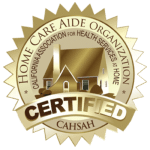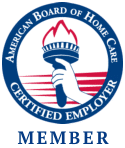As you care for your elderly loved one with Alzheimer’s disease, there are a lot of day-to-day responsibilities that you perform to help your loved one maintain her health and have the best care possible. As the disease progresses, she will not only be unable to perform more daily tasks, but she will also become less able to convey a health concern or issue with you so constant evaluation is needed to make sure she isn’t suffering from another condition. Alzheimer’s home care providers are great resources for helping you manage your day-to-day responsibilities as well as protect your loved one from common medical problems.
Medical Problems That May Occur in Alzheimer’s Patients
Your loved one might have Alzheimer’s disease, but she’s also a human that’s getting older and may come down with other conditions just like anyone else.
Here are some common conditions that a loved one might not be able to fully articulate to you and the symptoms to watch for.
Constipation. Your loved one may not be able to share with you that she’s feeling bloated or constipated and you might see it come out in other behaviors such as aggression or irritation. As a caregiver, monitoring her daily bowel habits can help you stay on top of whether or not she is having regular bowel movements. You can also take steps to help prevent constipation such as ensuring she has a diet that is fiber-rich and gets regular exercise to keep her digestive system working. An Alzheimer’s home care provider can be there to ensure proper eating and exercise are taking place
Toothaches. Dental care can become more difficult for those with Alzheimer’s especially if they have always had a fear of the dentist. Many Alzheimer’s patients cannot brush and floss their teeth well enough to thoroughly clean them. It can help to have a professional Alzheimer’s home care provider come to the home to help with dental care at home.
Respiratory Illnesses. Everyone gets a cold, the flu, or even COVID occasionally and it’s likely that at some point, your loved one will as well. Look for runny noses, eyes, a cough, or sneezing to determine if she has caught a virus or germ that is going around. If she has a fever as well, you should consider having her examined to determine what respiratory illness she is battling and if there is any medical treatment she can have. Otherwise, you and their Alzheimer’s home care aide should encourage rest, plenty of fluids, and over-the-counter medications to alleviate symptoms as needed.

Dehydration. The body needs a certain amount of fluids for it to continue running well. Some environments cause a person to need more fluids like heat or exercise, but even just staying inside at a comfortable temperature requires your loved one to drink enough water each day to prevent dehydration. Look for dry skin, sunken eyes, and reduced need to urinate (or very dark urine) to determine if your loved one is dehydrated. If your loved one balks at drinking water, offer other sources of liquid like tea, milk, or juice. An Alzheimer’s home care provider can help you with some tips to encourage more fluid intake.
Falls. Falling can be more likely for Alzheimer’s patients as they might have changes in their depth perception and have a more difficult time noticing when a floor level changes. Providing support around the home to hold onto and eliminating any rugs that may confuse them are two ways to help alleviate the concern around falling.
If you or an aging loved one are considering Alzheimer’s Home Care Services in Irvine CA, please call the caring staff at Canaan Home Care today! 1-844-CANAAN-1 (1-844-226-2261)
Canaan Home Care – A Premier Provider of Senior Home Care in the La Jolla, Del Mar, San Diego, Rancho Santa Fe, Newport Beach, Laguna Beach, Huntington Beach, Irvine, Tustin, and Manhattan Beach areas.
- Reduce Clutter and Reduce Stress This Spring - April 23, 2025
- Sight Issues Your Loved One With Alzheimer’s Disease May Experience - April 15, 2025
- Ways Respite Care Will Benefit Your Senior - April 9, 2025





